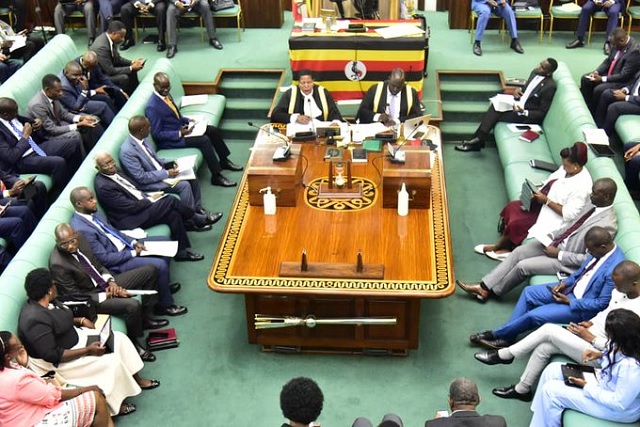
COMMENT | REGINA ASINDE | The Uganda Peoples’ Defence Forces (Amendment) Bill, 2025 tabled in parliament today has triggered serious concerns among human rights defenders and constitutional law experts. While the bill purports to streamline military administration and align structures with evolving defence needs, it dangerously extends military court jurisdiction over civilians, threatening the right to a fair trial and undermining constitutional safeguards.
At the heart of the controversy is the bill’s provision to prescribe “exceptional circumstances under which civilians may be tried by courts martial.” This clause reverses progress made by Uganda’s Constitutional Court and Supreme Court in defending civilian judicial rights. Notably, in Attorney General v. Michael Kabaziguruka (Constitutional Appeal No. 2 of 2021), the Supreme Court ruled unequivocally that it is unconstitutional for civilians to be tried in military courts. The 2025 bill claims to implement this decision, yet the ambiguous inclusion of “exceptional circumstances” appears to undermine it.
Even more troubling is Section 195 of the amended Act, which grants the General Court Martial “unlimited original jurisdiction to try any offence under this Act and under any other written law committed by a person subject to military law.” The definition of who qualifies as a person subject to military law remains dangerously broad and historically has been interpreted to include civilians in possession of arms, those accused of terrorism, or critics of the government. This ambiguity opens the door to politically motivated arrests and prosecutions of opposition members, journalists, or activists under the guise of national security.
Further institutional concerns arise from the establishment of the Military Courts Department under Section 202B. Here, judges and prosecutors are to be appointed by the High Command in consultation with the Judicial Service Commission. This structure lacks sufficient independence from the military hierarchy, raising the specter of command influence over judicial proceedings—a violation of the principle of impartiality enshrined in Article 28 of Uganda’s Constitution.
In addition, the bill repeals several sections (203–206) of the existing UPDF Act, which likely contained protective provisions regulating military trials. Their removal, without clear replacements, further weakens judicial oversight and civilian protection.
Human rights law at both the national and international levels opposes the trial of civilians in military courts. The African Commission on Human and Peoples’ Rights has repeatedly called on states to restrict military jurisdiction strictly to military personnel and offences. Uganda, as a signatory to the International Covenant on Civil and Political Rights (ICCPR), must uphold this obligation.
In light of these developments, civil society organizations, legal scholars, and legislators must raise critical questions: What are the “exceptional circumstances” referred to in the bill? Who defines them? And who ensures they are not abused?
If passed without revision, the UPDF (Amendment) Bill, 2025 risks turning military courts into tools of political suppression. It is vital that Parliament removes the clauses extending court martial jurisdiction to civilians and reinforces judicial independence in line with constitutional and international standards.
****
 The author is the Country Director of LERWA–Land and Environmental Rights Watch Africa Ltd, an author, and a community organiser with experience in human rights advocacy. She works at the intersection of land, environment, and social justice, supporting grassroots communities to amplify their voices and protect their rights. Her writing and organizing are deeply rooted in cultural awareness and a commitment to equity. Email: skasede@gmail.com
The author is the Country Director of LERWA–Land and Environmental Rights Watch Africa Ltd, an author, and a community organiser with experience in human rights advocacy. She works at the intersection of land, environment, and social justice, supporting grassroots communities to amplify their voices and protect their rights. Her writing and organizing are deeply rooted in cultural awareness and a commitment to equity. Email: skasede@gmail.com
 The Independent Uganda: You get the Truth we Pay the Price
The Independent Uganda: You get the Truth we Pay the Price



